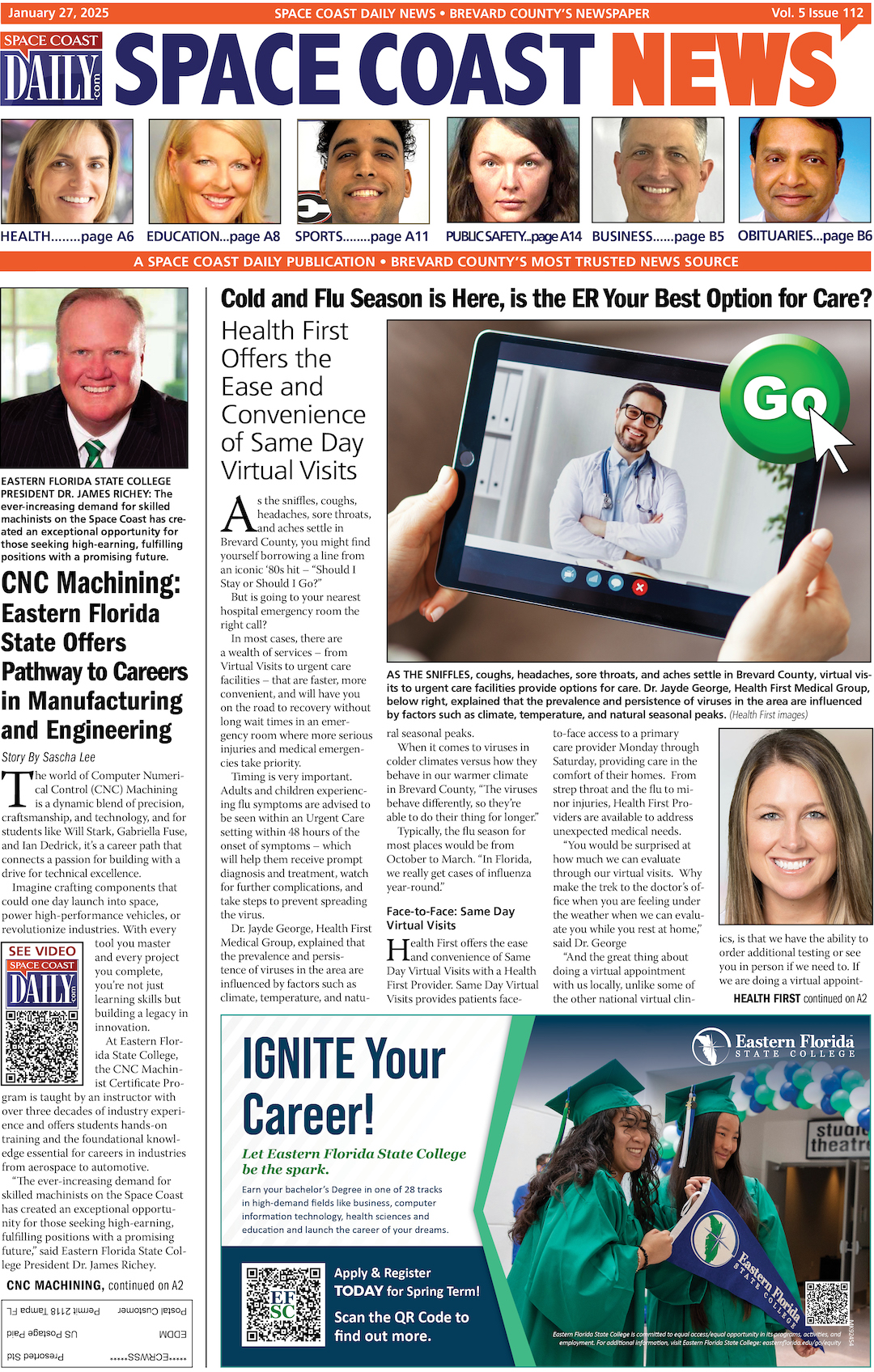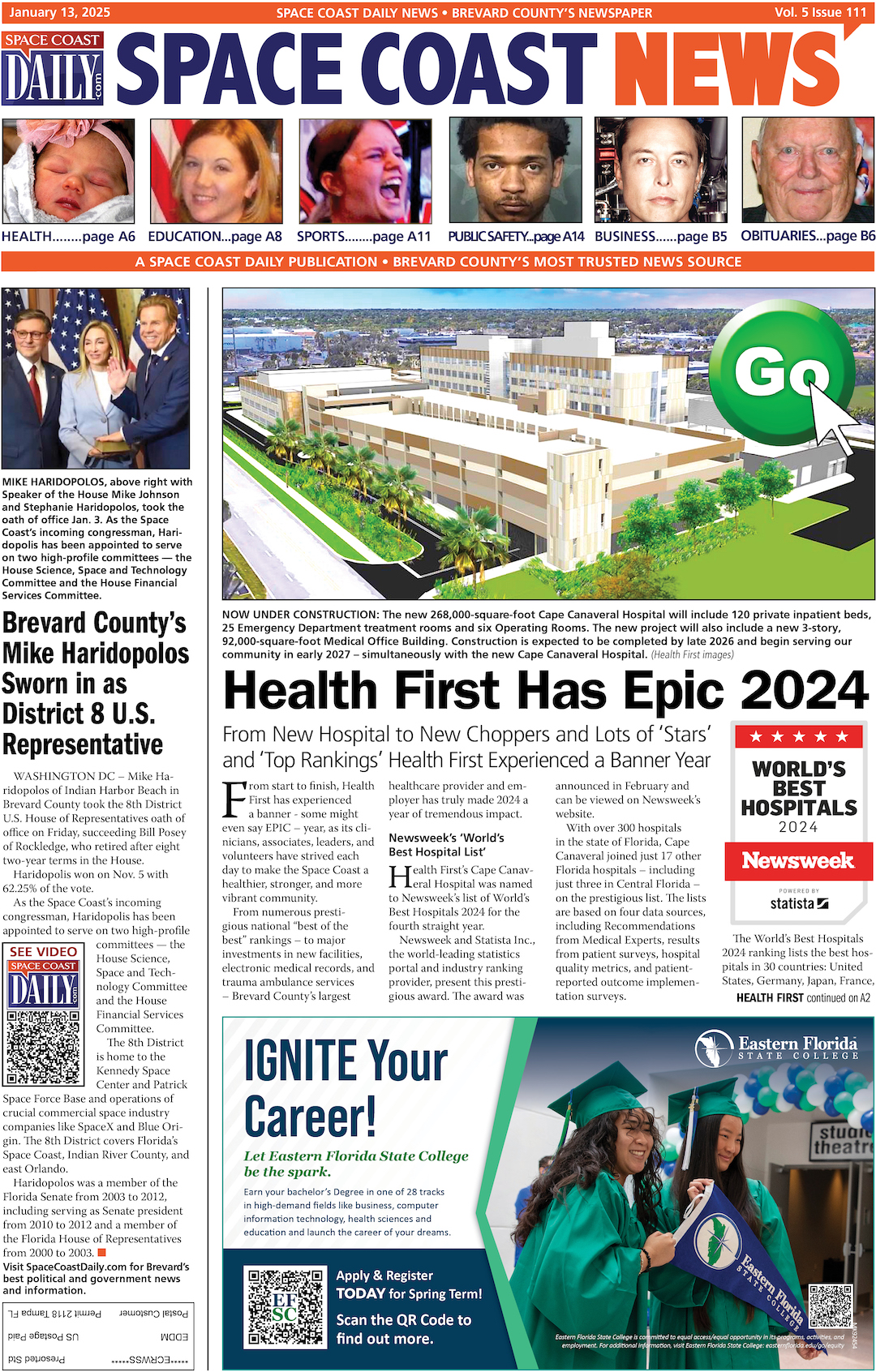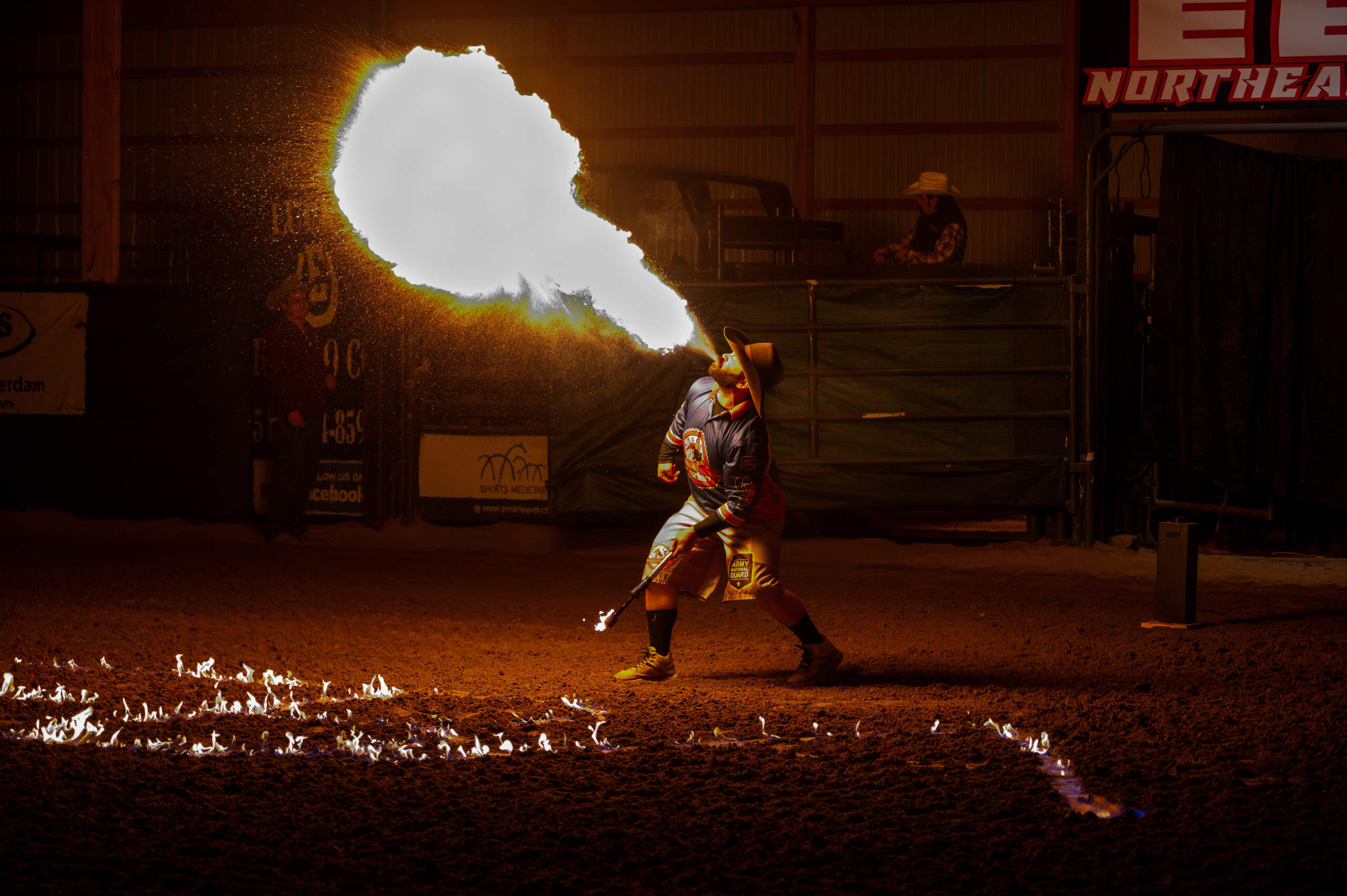‘Emotional’ Reunion Between Health First Surgeon, Trauma Patient Puts OneBlood Drive in Spotlight
By Space Coast Daily // February 10, 2023
Mark Stapleton of Viera reunited with Health First Trauma Surgeon Dr. Scott Zenoni
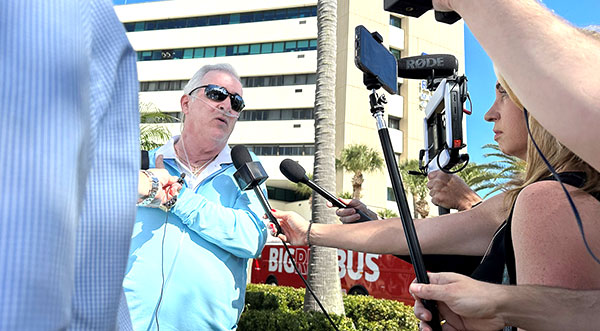
Accident victim returns to thank the surgeon and staff who helped him live to see the birth of his grandson. He thanks those who have donated blood, “and everybody who’s going to donate.”
BREVARD COUNTY • MELBOURNE, FLORIDA – “Emotional” was the word used by both patient and surgeon who reunited at a blood drive taking place outside the A Entrance at Health First’s Holmes Regional Medical Center Wednesday.
“You know, I thank God every morning and every night that I’m here,” said Mark Stapleton of Viera. “And, you know, great people like this, like the staff here, and the blood here.”
Next to Stapleton stood Health First Trauma Surgeon Scott Zenoni, MD. Next to him were managers of the Trauma Department and hospital Blood Bank, Nichole McKee and Stephanie Marrs, and surrounding them were media cameras and microphones along with staff from
OneBlood, the area’s donor blood procurement and processing agency.
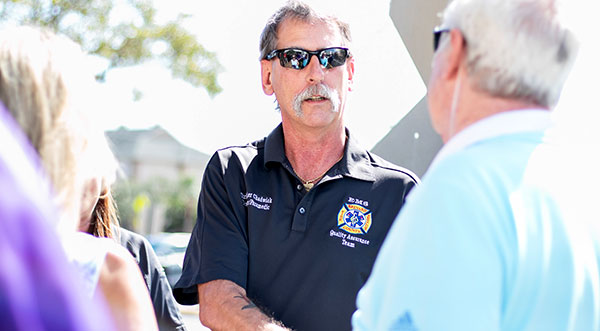
‘Follow Up, Closure’
“It’s emotional – he’s alive because of what we did,” said Dr. Zenoni, who added, “And because someone donated blood.” He called blood donors “the silent heroes.” Also present were firefighters and paramedics with Brevard County Fire Rescue.
“For our crews, it’s good to get a follow-up, get closure,” said Firefighter Paramedic Christopher Chadwick.
“It’s also part of our support, to engage with the whole healthcare system to make sure patients have a good outcome, and to see what we can do to improve or add to it.”
A stone’s throw from the clinicians, the firefighters, Mark and Eileen Stapleton, was the Big Red Bus, the well-traveled blood donation vehicle. Inside, Health First hospital staff and visitors were going through the preliminary steps to qualify to give blood.
“When you leave [the Big Red Bus or any donation center], you are literally helping give somebody a second chance at life,” said Susan Forbes, a Vice President at OneBlood. “The power to save somebody’s life is running through your veins.”
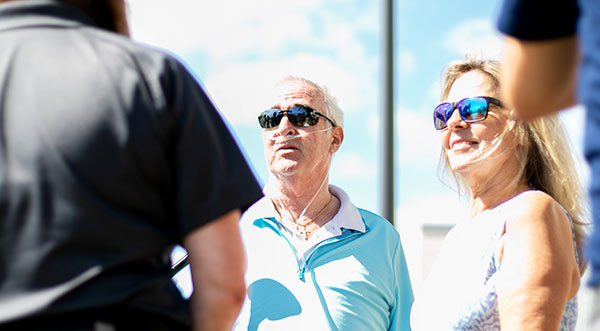
In An Instant
The decision to be a “silent hero” is selfless, and intentional, but being a recipient of others’ unsung valor is sudden and violent. In an instant, Mark Stapleton was thrown into the role of thankful blood recipient.
In April, Stapleton, along with his wife, Eileen, and another passenger were driving along when another vehicle lost control at a high rate of speed and crashed into them. Stapleton required multiple surgeries to save his life – ultimately spending 104 days in a hospital, most at Holmes Regional Medical Center.
On Wednesday, he wanted to go up to the fourth-floor Intensive Care Unit and thank doctors and staff there.
“You know, they could have given up at any time. It was really that push, that whole team working and getting things done together that kept me going and kept me alive,” Stapleton said.
The average adult carries approximately 10 pints of blood in their body. However, more than 17 pints of blood were required to save Stapleton’s life after the horrific crash.
Donors Thanked Individually
Recently, the Stapletons welcomed their first grandson (they have three granddaughters). “Without all this, I never would have met my grandson.”
For convenience, Health First has worked with donor blood agency OneBlood to schedule four Big Red Bus stops at Health First facilities. (The first took place on January 31 at Cape Canaveral Hospital.)
“My doctors have told me I’m their ‘Lazarus patient’ – meaning I really shouldn’t be here after that accident,” said Stapleton.
Following his life-saving care, Mark Stapleton’s daughter wrote all 17 blood donors to thank them and explain how their donation helped. The program is called Message My Donor, and OneBlood, who facilitates it, is quick to emphasize that neither the donors nor the patient is identified during this communication.
“I’m so very lucky,” Stapleton said, “and I want others to know how important the donation of blood is just based on my own experience. There are people I will never know or meet who helped to save my life that day and don’t even know it.”
“Blood donation is such an easy way to make a huge impact in your community,” Forbes said. “It is an easy process. It is safe, and we have a tremendous staff on the front lines that make it a lot of fun.”
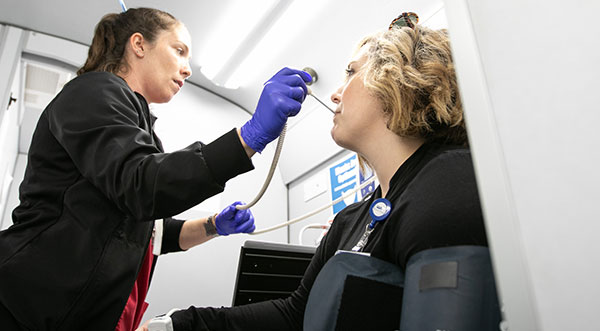
Big Red Bus Stops
“Donating blood saves lives,” Dr. Zenoni says. “Blood is utilized faster than it can be donated. According to OneBlood, someone needs blood every 2 seconds of the day. And with a limited shelf life, a constant resupply is needed.
As many Americans continue to work from home, business-hosted blood drives are down as much as 50% since 2019. Eligible donors of all blood types, but especially “universal” Type O donors, are needed to replenish supplies and prevent delays for patients who need life-saving transfusions.
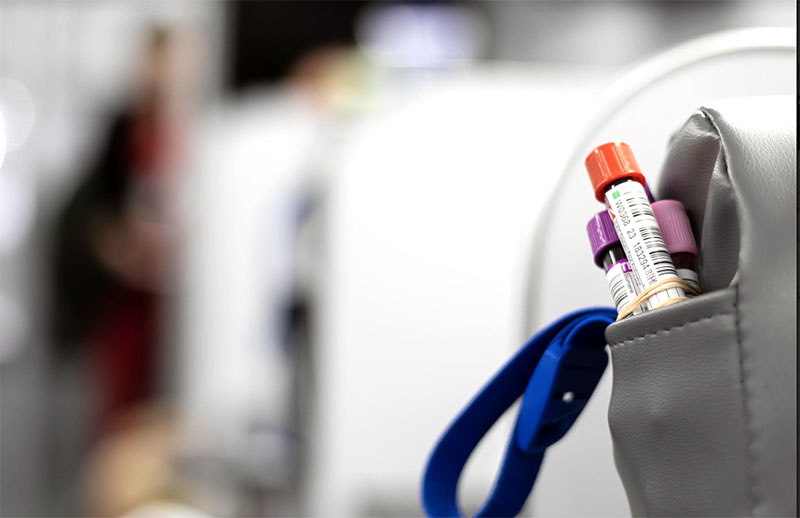
The bus makes two more Health First stops in the coming weeks:
■ On February 13 at Health First’s Pro-Health & Fitness Center, 8705 N. Wickham Road in Viera from 11 a.m. to 4 p.m.
■ On March 7 at Health First’s Viera Hospital, 8745 N. Wickham Road in Viera
■ As always, anyone can find a blood donation event and schedule their own visit online at DonorPortal.OneBlood.org/donate-now.
Visit HF.org/news to keep up with the latest at Health First.
CLICK HERE FOR BREVARD COUNTY NEWS



